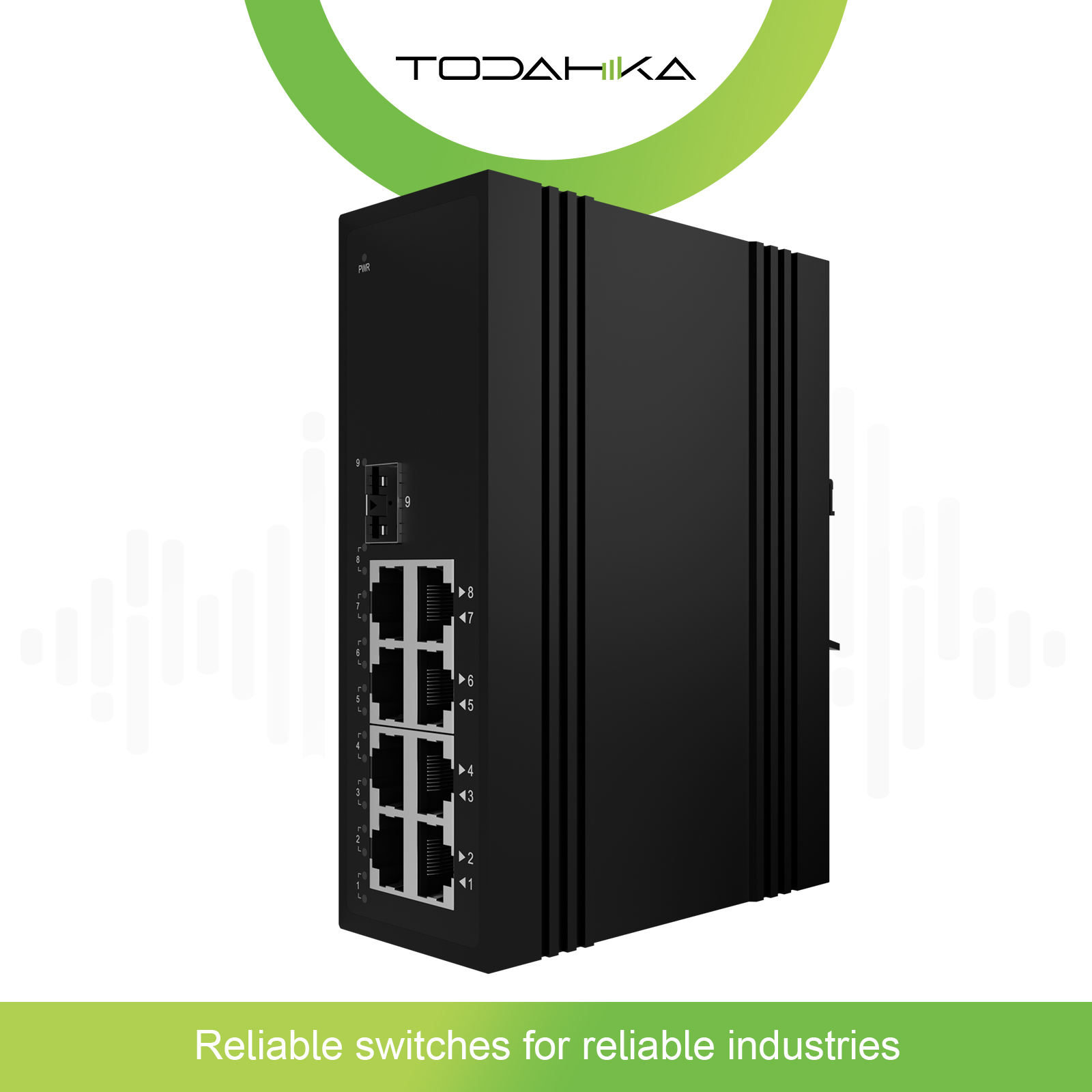As industries around the world embrace automation and digitization, the need for robust, reliable and efficient network solutions has grown exponentially. Industrial network switches have become key components in various fields, facilitating seamless communication and data transfer between complex systems. Designed to withstand harsh environments, these switches play a key role in ensuring the smooth operation of industrial processes. Here, we explore some of the key application scenarios where industrial network switches are making a big impact.
1. Intelligent manufacturing and industrial automation
In the era of Industry 4.0, smart manufacturing relies heavily on real-time data exchange between machines, sensors and control systems. Industrial network switches enable this communication by providing high-speed, low-latency connectivity throughout the manufacturing floor. These switches ensure the uninterrupted flow of critical data, enabling precise control and monitoring of automated processes. Additionally, they support advanced features such as VLANs and QoS (Quality of Service), which are critical for prioritizing time-sensitive data in industrial environments.
Example: In automotive manufacturing, industrial network switches connect robotic arms, assembly lines, and quality control systems to enable seamless coordination and real-time adjustments to production processes.
2. Energy and Utilities Sector
The energy and utilities sector requires highly reliable and secure communications networks to manage power grids, substations and renewable energy sources. Industrial network switches that comply with standards such as IEC 61850 play a vital role in ensuring the stability and efficiency of these networks. They provide powerful connectivity to substations, enabling real-time monitoring and control of electrical systems, helping to prevent blackouts and ensure the continued delivery of power.
Example: In smart grid systems, industrial network switches connect a wide range of sensors and control devices to facilitate the efficient distribution of power and the integration of renewable energy.
3. Transport and railways
In the field of transportation, especially in railway systems, industrial network switches are essential to maintain reliable communication between various subsystems such as signaling, passenger information systems and monitoring. These switches are designed to withstand vibration, temperature fluctuations and electromagnetic interference commonly found in transportation environments. Compliance with standards such as EN 50155 ensures that these switches can operate reliably in such challenging conditions.
Example: Industrial network switches in trains connect onboard systems such as CCTV cameras, passenger Wi-Fi and control systems to ensure safe and efficient operations.
4. Oil and Gas Industry
The oil and gas industry operates in some of the most challenging environments, including offshore platforms and remote drilling sites. Industrial network switches used in this field must be able to withstand extreme temperature, humidity and corrosive conditions while providing reliable communication links. These switches are critical for monitoring and controlling drilling operations, ensuring safety and optimizing production processes.
Example: On an offshore oil drilling platform, industrial network switches connect various sensors and control systems to realize real-time monitoring of drilling operations and ensure the safety and efficiency of the mining process.
5. Building automation and security
Modern buildings, whether commercial or residential, are increasingly equipped with smart systems that control lighting, HVAC, security and access control. Industrial network switches are used to create the backbone of these building automation systems, providing reliable and secure communication between different devices and systems. They also play a role in integrated security systems, connecting surveillance cameras, alarms and access control systems.
Example: In smart office buildings, industrial network switches connect HVAC systems, lighting controls, and security cameras to a central management platform, enabling efficient energy use and enhanced security.
6. Water and wastewater treatment
Water treatment plants and wastewater treatment facilities require robust and reliable networks to monitor and control processes ranging from filtration to chemical dosing. Industrial network switches provide the necessary connectivity for these operations, ensuring real-time transmission of data from sensors and control systems for efficient process management.
Example: In wastewater treatment facilities, industrial network switches connect various sensors and controllers to central monitoring systems, ensuring efficient treatment processes and compliance with environmental regulations.
7. Mining and heavy industry
The mining industry operates in harsh and remote environments, and reliable communications networks are critical for safety and operational efficiency. Industrial network switches are used to connect equipment, sensors and monitoring systems, providing real-time data critical to safe and efficient mining operations. These switches must be rugged enough to withstand the harsh conditions typical of mining environments.
Example: In mining operations, industrial network switches connect mining equipment, monitoring systems and safety controls to ensure efficient operations and worker safety.
in conclusion
Industrial network switches are the unsung heroes of modern industrial applications, providing the backbone of reliable, secure and efficient communication networks in every field. From manufacturing to energy, transportation to mining, these powerful devices ensure the uninterrupted flow of critical data, allowing complex systems to operate seamlessly. As industries continue to embrace automation and digitization, the role of industrial network switches will only grow, making them an integral part of the pursuit of greater efficiency, security, and innovation.
Post time: Aug-22-2024




